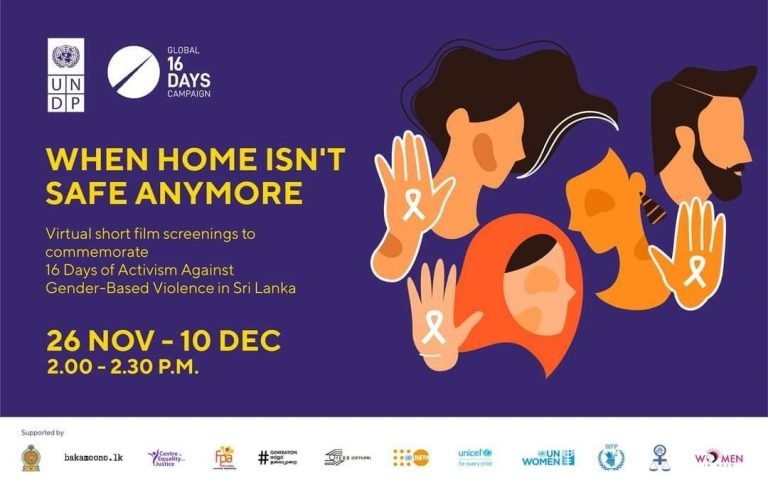
Impact of Social Media on 16 Days of Activism Against Gender Based Violence
Nilupuli Nayanathara Jayathilaka
16 Days Against of Activism Against Gender Based Violence is a campaign to prevent all forms of violence against women and to eradicate them from the world. Running each year from November 25th to December 10th, it is organized by various women’s activists around the world, including women’s rights organizations. It seeks to prevent and legislate on a variety of forms of violence against women, including domestic violence, underage marriages, abortion right, sexual abuse and more. Although this campaign takes place every year, the highlight of this year is the increase in gender-based violence, especially domestic violence, in many parts of the world, including Sri Lanka, in the wake of the ongoing Covid 19 pandemic.
During the first wave of the Covid19 outbreak, Pushpa Ramyani Zoysa, a well-respected nurse made a statement on her social media account that the number of women coming into the hospital for treatment was increasing due to being assaulted by their husbands. Similarly, violence against women has been also reported in government institutions recently. Moreover, there is evidence that a man tried to coerce a child into showing her genitals in front of a religious place. In fact, we often see such events in the news as it spreads quickly in the media presently. This does not mean however that such incidents didn’t occur in the past or that it has increased in the present. The only reason we see such things more often now is because of the increasing use of social media and the instinct to record such scenes and post them on social media without hesitation.
If so, then social media also can play a huge role in raising a voice against gender-based violence. One powerful publication on violence based on gender is enough to create a social discourse, especially on these forms of systemic violence. Also, the articles and discussions published by various social activists on social media networks such as Facebook and Twitter against this harassment provide a great deal of knowledge to those who use social media. Many people have posted their opinions, especially regarding sanitary napkins, and a study of those articles shows that the subject has taken a different path. As with the sanitary napkin debate, violence based on gender is a taboo topic in society. Organizations working on campaigns for 16 Days of Activism Against Gender Based Violence have also organized a series of webinars through with UNDP and Sri Lanka Youth Counseling Network and others advocating and working for women’s rights. There is also a prominent quiz program on social media these days.


Through these collective programs, social media users can gain new knowledge and understanding of actions that can be taken if they are subjected to gender-based violence. Of course, there has been a lot of talk on social media about this topic recently due to the number of social media users increasing in the current pandemic context. While social media can play a significant role in such matters, the opposite is also true: social media also has the potential to spread gender-based violence. There can be a lot of talk on social media about physical and mental abuse as well as cyberbullying based on gender. It would be great if social media users could build a discourse on this violence, not just for 16 days of the year, but throughout.








